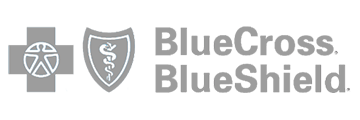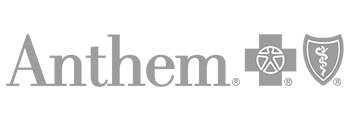depression
Depression and addiction are medical conditions, not moral failures. If you or a loved one is living with SUD along with depression, it is not your fault. You deserve compassionate care to help you live a rich and fulfilling life.
Our Services
Depression In Recovery

Everyone experiences both good and bad days throughout their life. For some people, though, negative or sad feelings never seem to go away. These persistent feelings of hopelessness or negativity are usually labeled “depression.” The CDC estimates that nearly 5 percent of Americans live with depression. For individuals living with substance abuse disorders (SUD), the numbers can range from 30 to 40 percent.
If you are beginning treatment for SUD, you may be wondering:
- What exactly is depression?
- How does depression relate to addiction?
- How can I be treated for depression during recovery?
What Is Depression?
The word “depression” can refer to several different medical conditions. Major depressive disorder, or clinical depression, is the most common form. This condition can be diagnosed when the patient shows symptoms for more than two weeks. There are many symptoms that can indicate clinical depression, and not every patient will display every symptom. In children, symptoms will tend towards anxiousness and irritability. On the other hand, adults tend to show more “low-mood” style symptoms. Some of the more common symptoms include:
- Persistent feelings of sadness
- Feelings of hopelessness or pessimism
- Unexplained feelings of guilt
- Irritability
- Trouble sitting still
- Suicidal thoughts or ideas
Risk Factors for Depression
Depression can occur at any age and within any socio-economic group. Researchers have found genetic links in many patients with depression. Patients with close family members who are depressed are more likely to live with the condition themselves. Life experience or recent big changes in life can also cause depression. This is especially true for patients who have endured traumatic events in life. Co-occurring medical conditions and treatments can also cause depression. Co-occurring medical conditions may affect depression, as can certain medications. Fortunately, doctors can often modify treatment plans for patients who are experiencing mental distress.
Related Conditions
Besides clinical depression, there are other mental conditions that are sometimes labelled “depression.” these include:
Postpartum Depression – experienced by women who have recently given birth. This can include all the symptoms of clinical depression. New mothers experiencing postpartum depression may find it hard to complete daily tasks.
Psychotic Depression – patients have the symptoms of clinical depression plus psychosis. They may hear sounds or see things that are not there.
Persistent Depressive Disorder – patients experience the symptoms of depression for at least two years.
Seasonal Affective Disorder – patient’s mood may worsen depending on the season or time of year.
Another common disorder that is sometimes confused for depression is bipolar disorder. Patients with bipolar disorder may feel severely depressed for a period of time, followed by a period of euphoria. Because these patients experience a wider change in emotions, different treatment options are used. Like depression, though, bipolar disorder is common among patients undergoing treatment for SUD.
How Does Depression Relate to Addiction?
Patients living with SUD or alcohol use disorder (AUD) are statistically more likely feel depressed. In many ways, scientists are just beginning to explore these links. We do know that both conditions have genetic links. Some theories suggest that the same genes that predispose patients to depression may also predispose addiction.
Other studies show links to depression forming as a result of substance use. When someone uses an addictive substance, the brain is essentially hijacked. The first few uses will cause the brain to send out pleasure/reward signals through hormones like dopamine and serotonin. As use continues, the drug makes the brain depend on it for normal function. As the presence of substance decreases, the brain sends out distress signals. These signals make the patient feel physically ill and can cause a severely altered mood. During all of this, the substance is rewiring the brain’s normal neuropathways. Patients that live with SUD may begin to notice depression symptoms, even if they were previously symptom free.
How Can I Be Treated For Depression In Recovery?
If you are currently using substances and looking for treatment, congratulations! You are taking the first and most difficult step to recovery. Many patients who begin this journey may not yet know if they have depression or a similar condition. In fact, it is not uncommon for these conditions to be discovered during treatment. Our team of experts is highly trained and experienced in treating these conditions together. Here is what you can expect the process to look like:
Admission
Our admissions coordinators will work with you to answer any questions and ensure our services will meet your needs. During this process, we will gather details about your medical history. You may also be asked about your substance use history, as well as your current living situation. Be sure to tell us about any medications you may be taking, whether prescription or over the counter. We accept most major insurance plans and will let you know up front about any additional copays.
Detox
This is the process of cleansing your body of any substances. If you have not already gone through detox, please discuss your options with our admissions coordinators. Depending on your needs, this process may require medical supervision for your safety and comfort.
Treatment
When you start your treatment program, you will likely enter either partial hospitalization (PHP) or Intensive Outpatient (IOP). In partial hospitalization, you will spend a minimum of 30 hours a week in individual and group therapy. In the IOP program, the minimum is 15 hours a week. Our certified addiction counselors will help you identify triggers and develop coping strategies for addiction and depression. Our team also provides medication management services to ensure your medicines and dosages are safe and effective. Our team can also spot symptoms of undiagnosed conditions and help you with treatment options as needed.
Contact Us Today
Depression and addiction are medical conditions, not moral failures. If you or a loved one is living with SUD along with depression, it is not your fault. You deserve compassionate care to help you live a rich and fulfilling life. Contact us today either through our website, or by phone at (770) 818-4325. We look forward to serving you!
Get the help you need now
We are Here for you.
If you or a loved one need help, we are available to guide you through every step of your recovery. Call us today and speak with a recovery counselor to get started.








